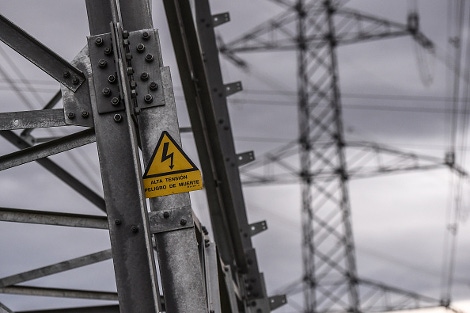Contractors Fined after Electrocution Death at Morgan Stanley Data CenterContractors Fined after Electrocution Death at Morgan Stanley Data Center
UK court finds Balfour Beatty, CBRE’s Norland guilty of breaching safety rules during electrical upgrade project

Almost exactly five years ago, in October 2010, an electrical worker at a Morgan Stanley data center in the UK was electrocuted to death when his forehead accidentally came in contact with live 415V electrical terminals.
Last week, a court in Ipswich found Balfour Beatty Engineering Services and Norland Managed Services, a subsidiary of the Los Angeles-based commercial real estate giant CBRE Group, guilty of negligence that led to the death of 27-year-old Martin Walton and issued fines totaling £380,000, according to the Health and Safety Executive, a UK government body.
London-based Balfour Beatty was contracted to carry out multi-million-pound infrastructure upgrades at Morgan Stanley’s Heathrow data center in Hounslow, near the Heathrow airport, while Norland had control of the site as a mechanical and electrical maintenance contractor. The project included connecting the data center to a second electrical substation and installing additional power distribution units.
Walton was doing cabling work as a subcontractor employed by Integrated Cable Services. He was electrocuted during live load testing of the new PDUs that had to be done before the units were connected to the facility’s existing infrastructure, HSE said in a statement.
The units had to be tested with live power supplies because of “last-minute modifications.” They had to be tested with two power supplies: the existing one controlled by Norland and the new one controlled by Balfour Beatty.
HSE told the court the incident was caused by “a succession of failures indicative of the complete breakdown of [Balfour Beaty’s] management of health and safety in relation to this project, particularly the breakdown of communication.”
The first of three PDUs was modified, tested, and connected successfully. Walton was electrocuted “when his forehead made contact with the 415V live terminals of the second unit.”
The court ordered Balfour Beatty to pay £280,000 in fines for violating two sections of the Health and Safety Work Act. The company admitted the two breaches, according to HSE.
Norland was found guilty of breaching one section of the act and fined £100,000.
Norland did not participate in the project but was punished because of the way it managed the project’s impact on existing infrastructure that was under its control. According to HSE, Norland should not have issued Walton a permit to reroute existing power supply through the new distribution unit while knowing that the unit could receive power supply from a source that wasn’t under its control and without making sure the other supply was isolated.
In a statement, a Norland spokesperson said the court had “recognized that the breach arose not as a result of systemic or management failings, but inadvertence on the part of one individual.” The statement did not specify which individual it was referring to.
“This is the only time that [Norland] has faced any formal enforcement action, and we conducted a full investigation and cooperated fully with the Health and Safety Executive,” it read. “Safeguarding the health and safety of all those within the buildings we manage sits at the heart of our business, and we regularly review all our processes and ensure all our staff are fully trained in the correct procedures and latest legislation.”
In addition to the Heathrow data center, Norland has worked as a contractor at Morgan Stanley’s Croydon data center, about 15 miles away. The spokesperson declined to say whether the company was still working for the client.
A Morgan Stanley spokesperson declined to comment.
We have reached out to Balfour Beatty for comment and will update this post once we hear from them.
Generally speaking, the danger of having people work near powered electrical equipment is a widespread issue in the data center industry that some in the industry have become more outspoken about recently.
About one third of respondents to a recent Uptime Institute survey of data center professionals said their organizations allowed maintenance activities on energized electrical equipment. About 60 percent said they were uncomfortable working in such environments, but only 30 percent said local regulations in their areas prohibited maintenance on energized gear.
Chris Crosby, CEO of Compass Datacenters, has been speaking and writing on the dangers of deadly arc flash occurring in data center electrical rooms.
The rise of modularity in electrical systems in recent years has made the issue even more acute. Building out only part of the infrastructure to reduce upfront capital expenditures means adding electrical equipment later to a live system, increasing the chances of technicians coming in contact with powered gear.
“Some of the modular builds – the ‘add it later’ type of scenarios – require energized work and frankly, from an OSHA and an NFPA perspective, that’s against the law. More important than that, it’s not just against the law. It’s really a moral issue. You’re sending employees … into an environment in which they can die,” Crosby said in a video message posted on Compass’s website. “You can’t do hot work, so whenever you hold off on adding that last UPS, that last PDU, as soon as you make that decision, you’re also making the decision that you will shut that board down.”
Read more about:
EuropeAbout the Author
You May Also Like







